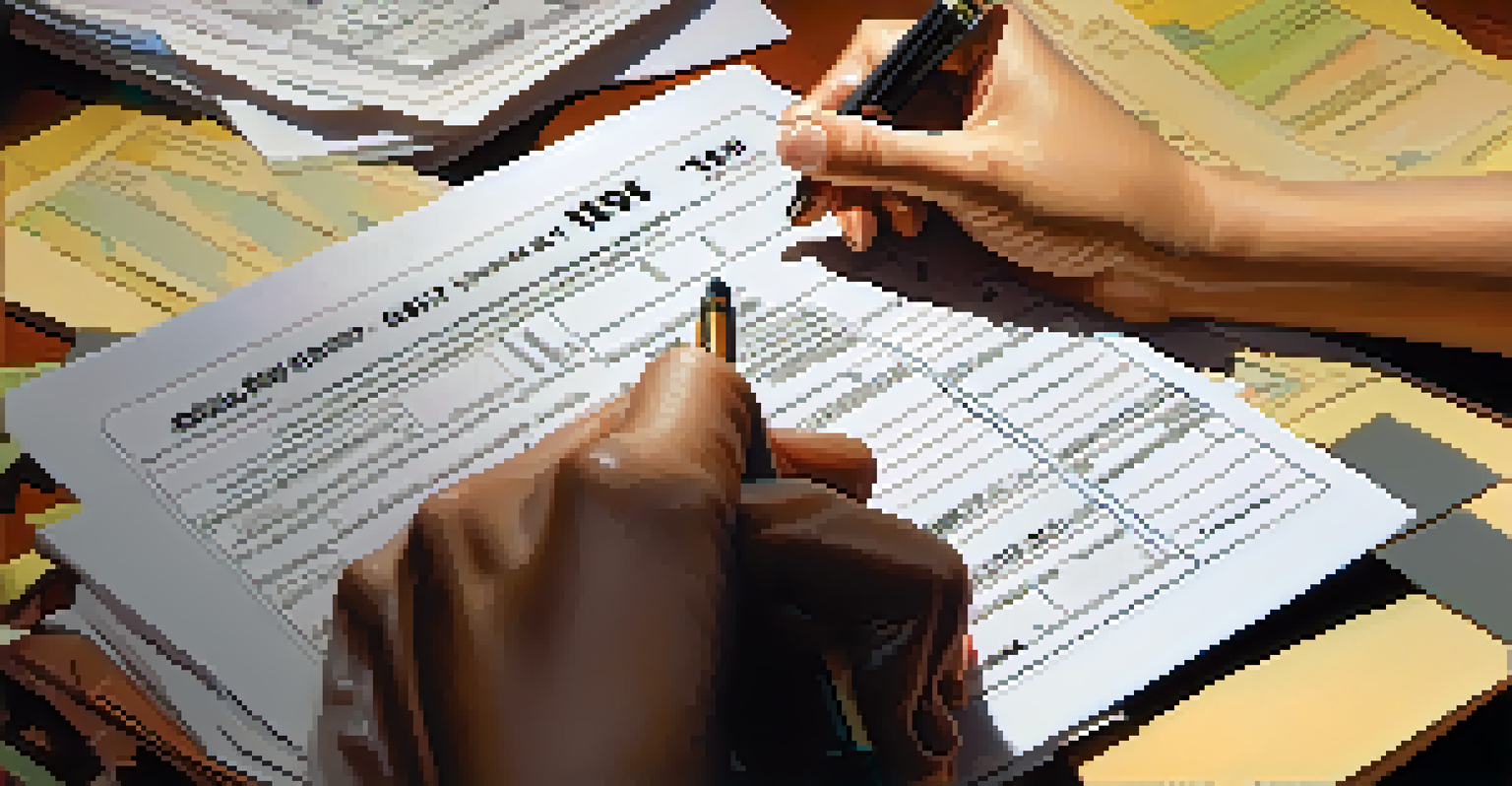Tax Deductions: What Every Entrepreneur Should Know

What Are Tax Deductions and Why Do They Matter?
Tax deductions are expenses that you can subtract from your total taxable income, effectively lowering the amount of tax you owe. For entrepreneurs, understanding these deductions is crucial because it can significantly impact your bottom line. Think of it like trimming the fat off a budget—every little bit helps when it comes to profitability.
In this world, nothing can be said to be certain, except death and taxes.
When you know what qualifies as a deduction, you can keep more of your hard-earned money in your pocket. This means more funds to reinvest in your business, pay your team, or even take that much-needed vacation. Essentially, tax deductions are like financial lifebuoys that help keep your business afloat during turbulent times.
But navigating the world of tax deductions can be overwhelming, especially if you're new to entrepreneurship. It’s important to familiarize yourself with the basics so you can make informed decisions and maximize your savings come tax season.
Common Tax Deductions for Entrepreneurs
As an entrepreneur, you might be surprised to learn about the various expenses you can deduct. Common deductions include home office expenses, business travel, and equipment purchases. For example, if you work from home, a portion of your mortgage or rent may be deductible, which can add up to significant savings over time.

Additionally, if you travel for work, you can often deduct costs like airfare, hotel stays, and meals. Just remember to keep meticulous records of these expenses to make the deduction process smoother. Think of it as collecting receipts for a treasure hunt; the more you gather, the richer your findings.
Understanding Tax Deductions
Tax deductions allow you to subtract certain expenses from your taxable income, ultimately lowering your tax bill.
Other deductions can include professional services, marketing costs, and even certain educational expenses. The key is to understand what qualifies and to keep accurate documentation, so you don’t miss out on potential savings.
The Importance of Keeping Accurate Records
Maintaining accurate records is essential when it comes to claiming tax deductions. Without clear documentation, you risk losing out on valuable deductions or facing issues during an audit. Imagine trying to piece together a puzzle without all the pieces—it just doesn’t work well.
The hardest thing in the world to understand is the income tax.
You should develop a system for organizing receipts, invoices, and other financial documents throughout the year. Whether you use cloud storage, accounting software, or even a simple filing cabinet, consistency is key. This proactive approach will not only save you time during tax season but also provide peace of mind.
In addition to keeping records, consider consulting with a tax professional. They can guide you in establishing effective record-keeping practices tailored to your business needs, ensuring you don’t miss out on any deductions.
Understanding Deductible vs. Non-Deductible Expenses
Not all expenses can be deducted, and understanding the difference between deductible and non-deductible items is crucial. Deductible expenses are those directly related to your business operations, such as supplies, utilities, and payroll. Non-deductible expenses, on the other hand, might include personal costs or fines and penalties.
Imagine you own a bakery. While the costs of ingredients and employee wages are deductible, personal meals out with friends are not. This distinction is vital for ensuring you only claim what you’re entitled to, avoiding potential headaches with the IRS.
Keep Accurate Records
Maintaining organized records of your expenses is crucial for claiming deductions and avoiding issues during audits.
To make this clearer, keep a running list of your business-related expenses and consult IRS guidelines or a tax professional. This way, you’ll have a clearer picture of what you can claim come tax time.
How to Claim Your Deductions on Tax Returns
Claiming your deductions is a straightforward process, provided you have all your documentation in order. When filing your tax return, you'll typically use specific forms that correspond to your business structure—like Schedule C for sole proprietors. This is where you’ll list your income and expenses, making it easier to calculate your net profit.
It’s also essential to ensure you're using the correct tax software or working with a qualified tax professional. They can help maximize your deductions and ensure you’re compliant with tax laws. Think of them as your financial GPS, guiding you through the tax landscape.
Finally, don’t forget to review your tax return before submission. A quick double-check can help catch any missed deductions, ensuring you get every penny you deserve.
Tax Deductions for Home-Based Businesses
If you operate a home-based business, you may be eligible for specific deductions that can significantly lower your tax bill. The home office deduction, for instance, allows you to deduct a portion of your home expenses, like mortgage interest or utilities, based on the size of your workspace. It's like getting a piece of your home back in your pocket.
To qualify, your home office must be used regularly and exclusively for business purposes. This means that your kitchen table doesn’t count if you also use it for family dinners. It’s all about establishing a dedicated space where the magic happens.
Stay Updated on Tax Laws
Regularly updating yourself on tax law changes ensures you take advantage of new deductions and remain compliant.
Additionally, you might also be able to deduct expenses related to business supplies and equipment for your home office. Keeping track of these can make a substantial difference come tax season, so make sure you’re aware of what you can claim.
Staying Updated on Tax Law Changes
Tax laws are constantly evolving, and staying updated on these changes is vital for any entrepreneur. New deductions may be introduced, or existing ones may change, impacting how you approach your tax planning. Think of it as staying current on fashion trends; what was in last season might not work today.
One effective way to stay informed is by subscribing to newsletters from reputable tax organizations or consulting with a tax professional regularly. They can provide insights on relevant changes and help you adjust your strategies accordingly.

Additionally, participating in workshops or webinars can also offer valuable knowledge about tax deductions and planning. Keeping your finger on the pulse of tax laws can ultimately save you money and prevent compliance issues down the road.